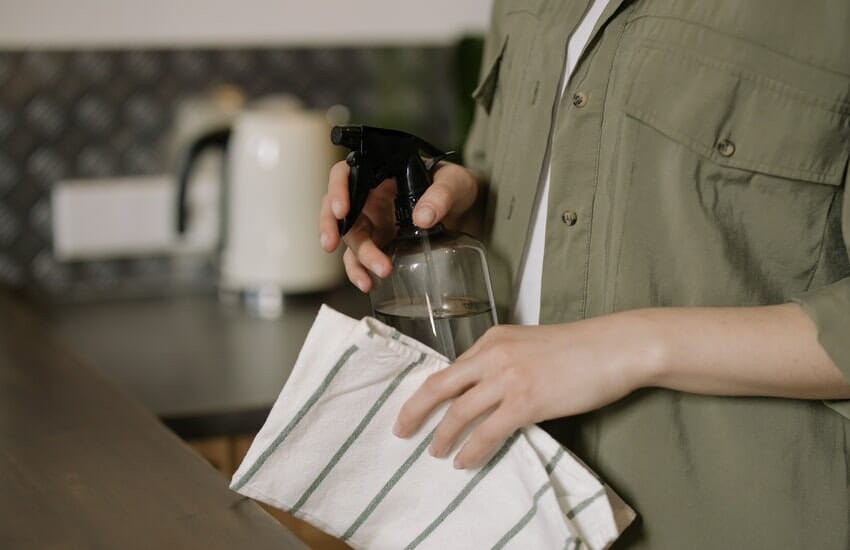Presented by BetterHelp.
One of the top struggles reported by those with ADHD as adults is difficulty with chores, especially related to cleaning. Certain tools such as planners, reminders, and apps can help to an extent, but it can get difficult to keep it up if you’re struggling with focus.

For that reason, we’ve put together a guide of the five best cleaning tips to utilize to help you keep your space clean and energizing when you have ADHD.
Make Cleaning Fun
It can be difficult to clean when it feels like you’re simply spending hours on something boring and tedious. Focusing on one task for so long is very difficult for someone with hyperactive ADHD, which is one of the most common mental health conditions worldwide. That’s why it’s best to make your cleaning experience as fun as possible. Here are some ways to do so:
- Create a game
- Make it a competition between you and your roommate about who cleans better
- Add a musical soundtrack
- Listen to a funny podcast
- Reward yourself
- Pick one category per 10 minutes to clean, and switch between them (first, clean everything that’s green, second clean everything that’s round, etc…)
If you can turn cleaning into a little challenge or game, your brain is less likely to wander off because you’re giving yourself the chance to work within your regular realm of thought.
Clean With a Friend
Being encouraged by someone else or helping someone else complete an important task at the same time as you can help motivate you to clean. For example, you can video chat with another friend who struggles to clean, and you can both spend time cleaning your own homes over video chat, chatting about it as you go and incentivizing each other.
If you need some sort of accountability to get things done, see if you have a friend who understands and might need the same thing from you!
Reward Yourself Per Stage of Cleaning
It’s okay not to want to do something that doesn’t seem to have an immediate reward. If you want to make cleaning more appealing, give yourself rewards for each stage of the cleaning process that you complete. You could even buy a surprise knick-knack chest for yourself or a snack box that you can pull from every time you complete one of the tasks on your list.
At the end of the cleaning day, when you have finished the entire home, choose a large reward for yourself, and pat yourself on the back. You’ve done an amazing job, after all!
Listen to Non-Distracting Music
If you need to have some sort of noise going on in the background while you clean, try a non-distracting playlist or podcast that makes you feel energized but doesn’t cause you to want to relax or sit down and listen.
The best types of songs are those that are upbeat and can play in the background while you clean, creating an inspiring and motivational energy in the room.
Clean Distracting Items Last
Finally, we know how easy it can be to get distracted while cleaning. Maybe you’ve found an old journal under your bed, and now you want to sit and read it for an hour. Maybe you’ve found your old Nintendo games and want to play them immediately.
Instead of looking through things, clean your home one room at a time, and leave the distracting usable items for last. Before you clean up or organize anything that you might want to look through or use, make sure the following items are done:
- Sanitizing of surfaces
- Sweeping, vacuuming, and mopping
- Picking up trash
- Throwing away trash
- Cleaning dishes
- Organizing clothes
- Doing the laundry
- Organizing your school items
Once your home is looking mostly tidy outside of the usable items, you can start to put them away. It’s better to leave the interactive stuff to the end so that if you get sidetracked for the rest of the night, at least you already did most of the cleaning, and it won’t be so overwhelming the next day.
Conclusion
We hope these five cleaning tips can help you get your mind on track while cleaning! If you want to learn more about ADHD and how it impacts the brain, check out this advice column: https://www.betterhelp.com/advice/adhd/ You can also browse a large selection of articles on other mental health topics, from relationships to love to paranoia.
